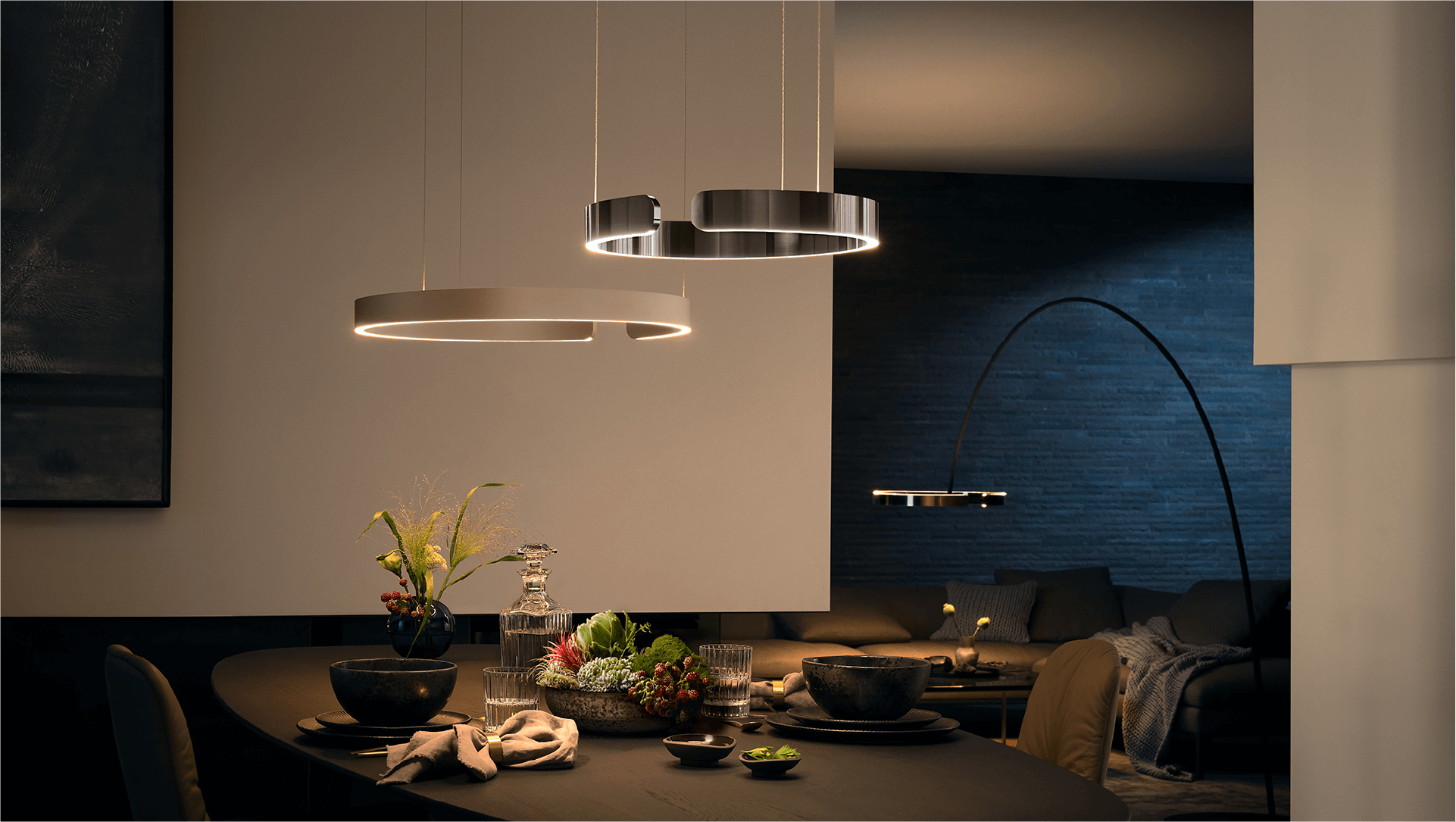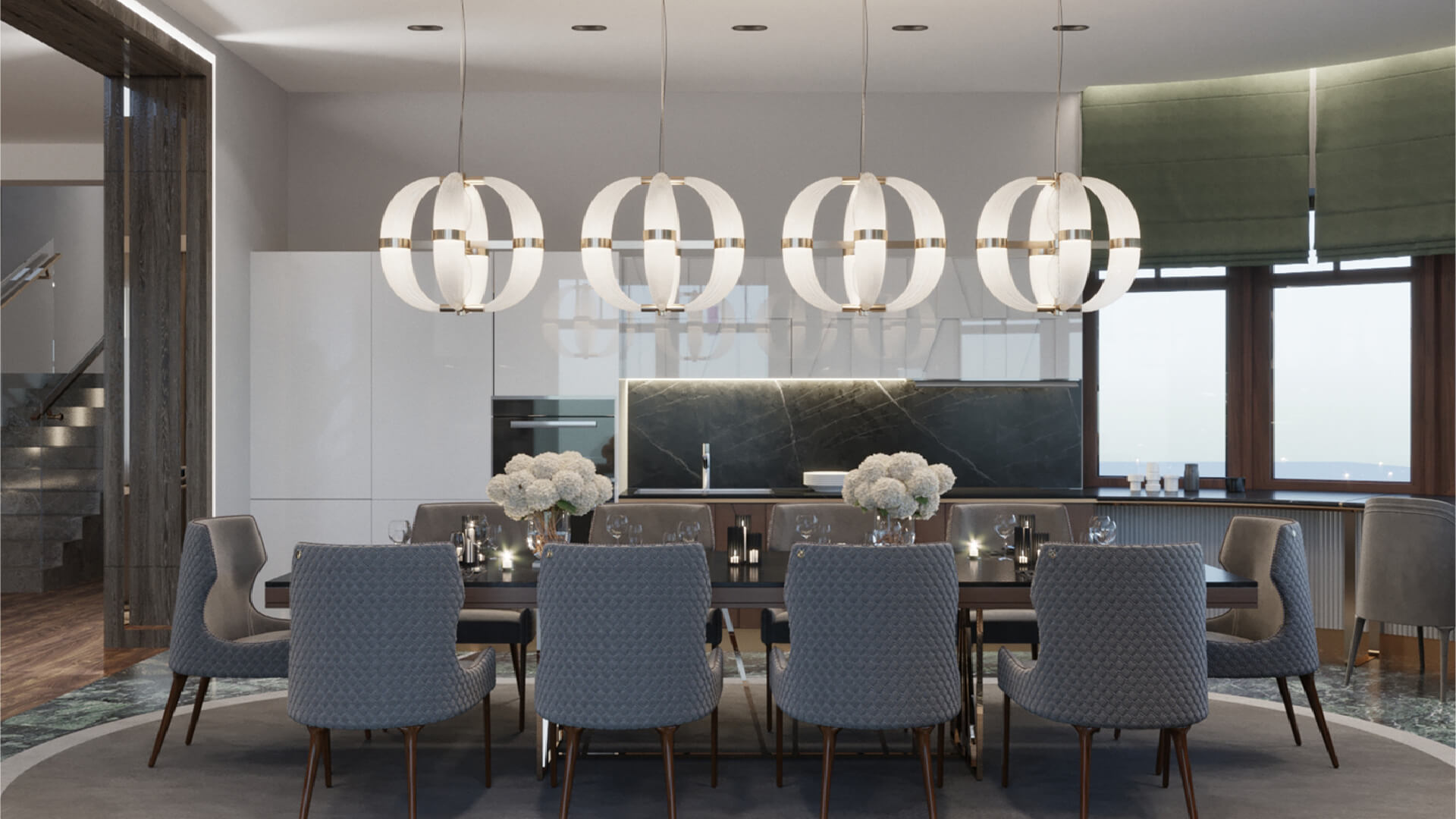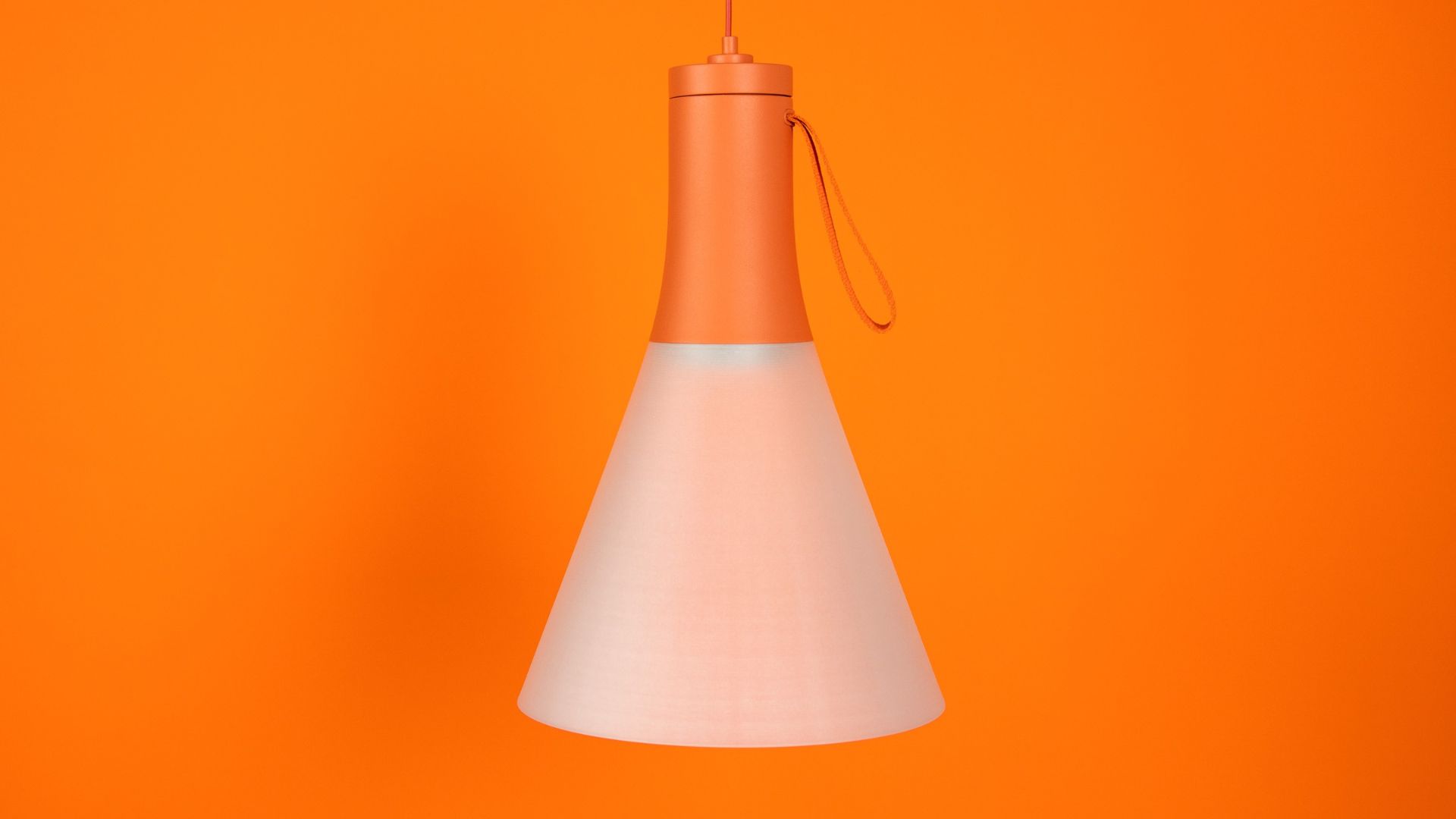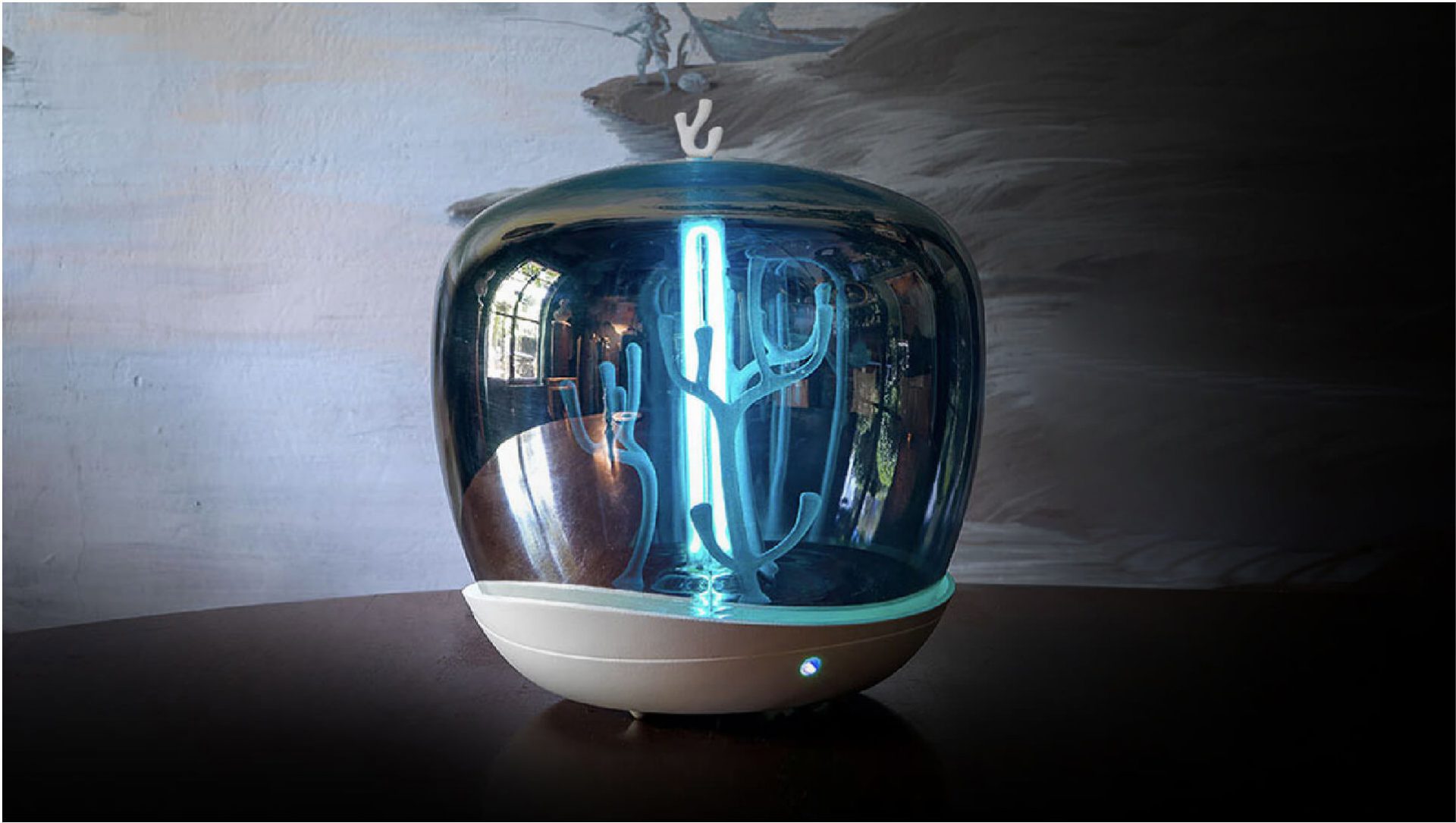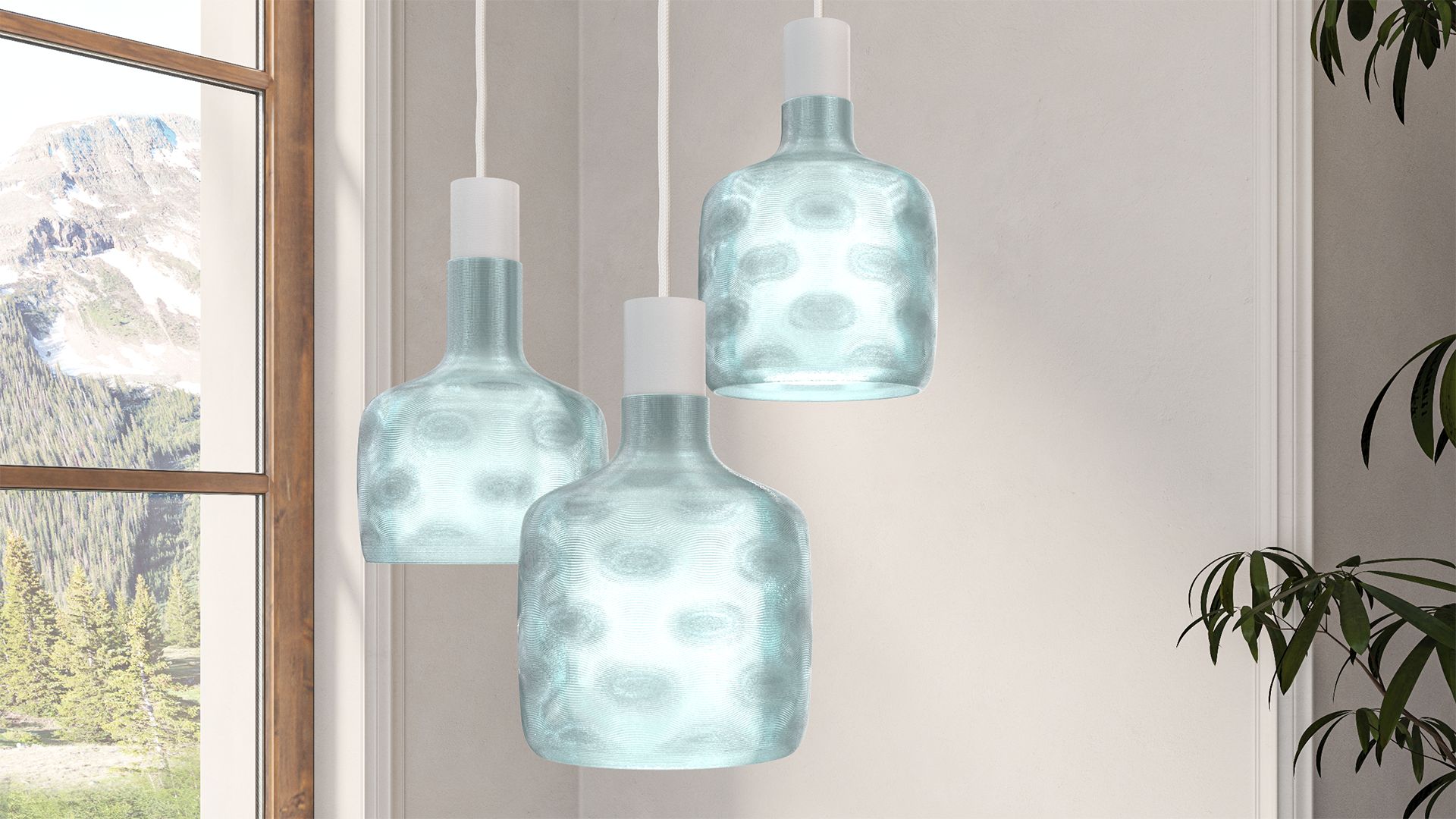Philips MyCreation’s sustainable lighting elevates the underwater dining experience at SeaWorld Abu Dhabi
Discover how the lighting brand transformed the underwater café with cutting-edge solutions.
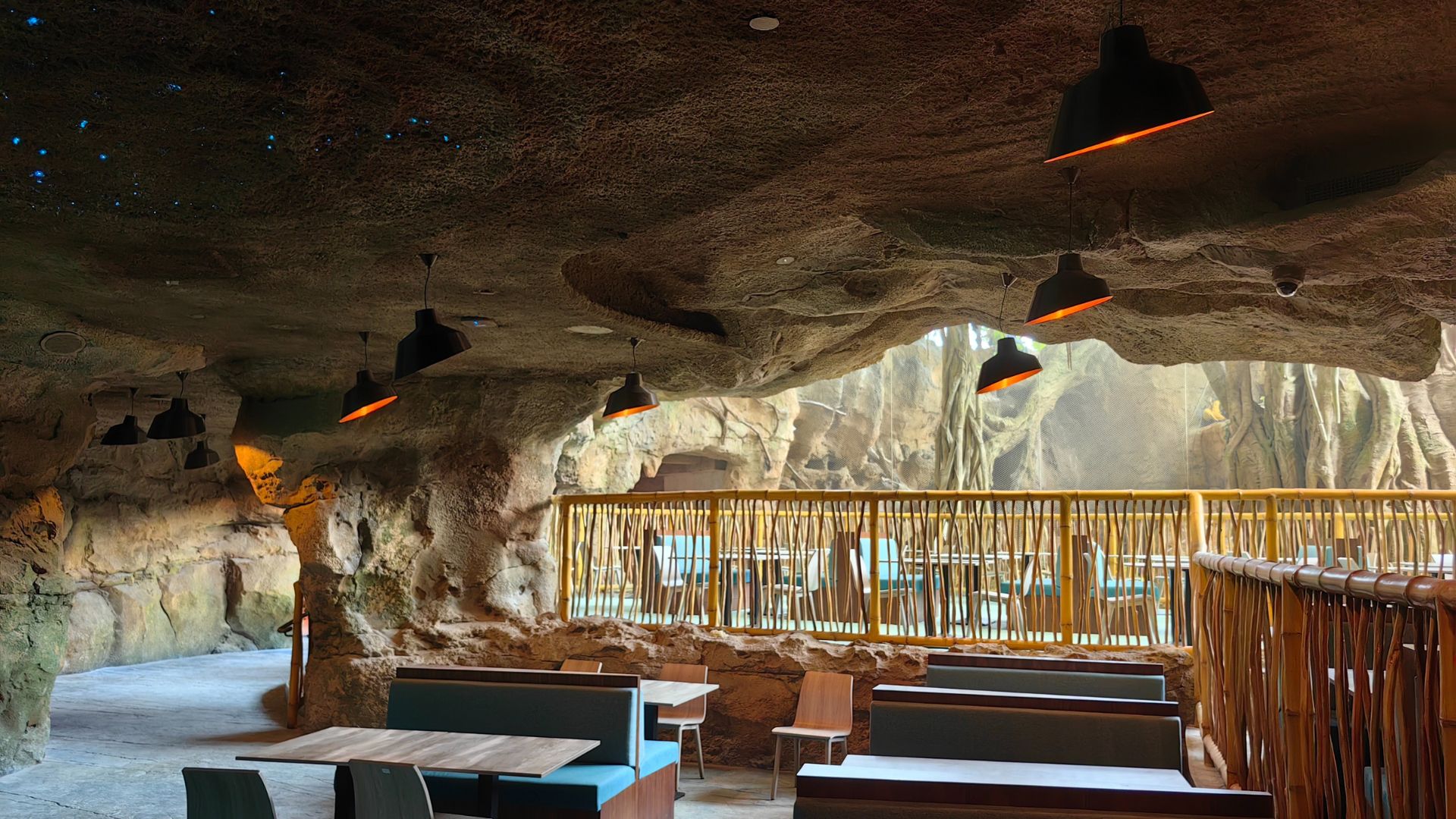
Like other design disciplines, effective lighting is often subtle, seamlessly integrating into its environment and satisfying the unique needs of any given space. However, poor lighting stands out conspicuously. To address these complexities, lighting designers such as Philips MyCreation require solutions that marry functionality with aesthetics, whilst satisfying the design guidelines and objectives of their clients, in this case, those of the renowned SeaWorld® Yas Island in Abu Dhabi.
Inside its Cenote Café, SeaWorld® Yas Island offers its visitors an enchanting underwater experience that is dependent on the right lighting. In 2023, a design flaw emerged in the hospitality space when park officials noticed the current lighting system at the time was casting disruptive reflections on the acrylic windows of the aquarium, detracting from the unique dining ambiance and scaring marine life away.
In response, Miral, the operator of SeaWorld® Abu Dhabi, tapped Philips MyCreation to come up with a solution that would harmonise with their commitment to sustainability and circularity, while preserving the delicate balance between illuminating the dining area and respecting the light sensitivity of the aquatic inhabitants.
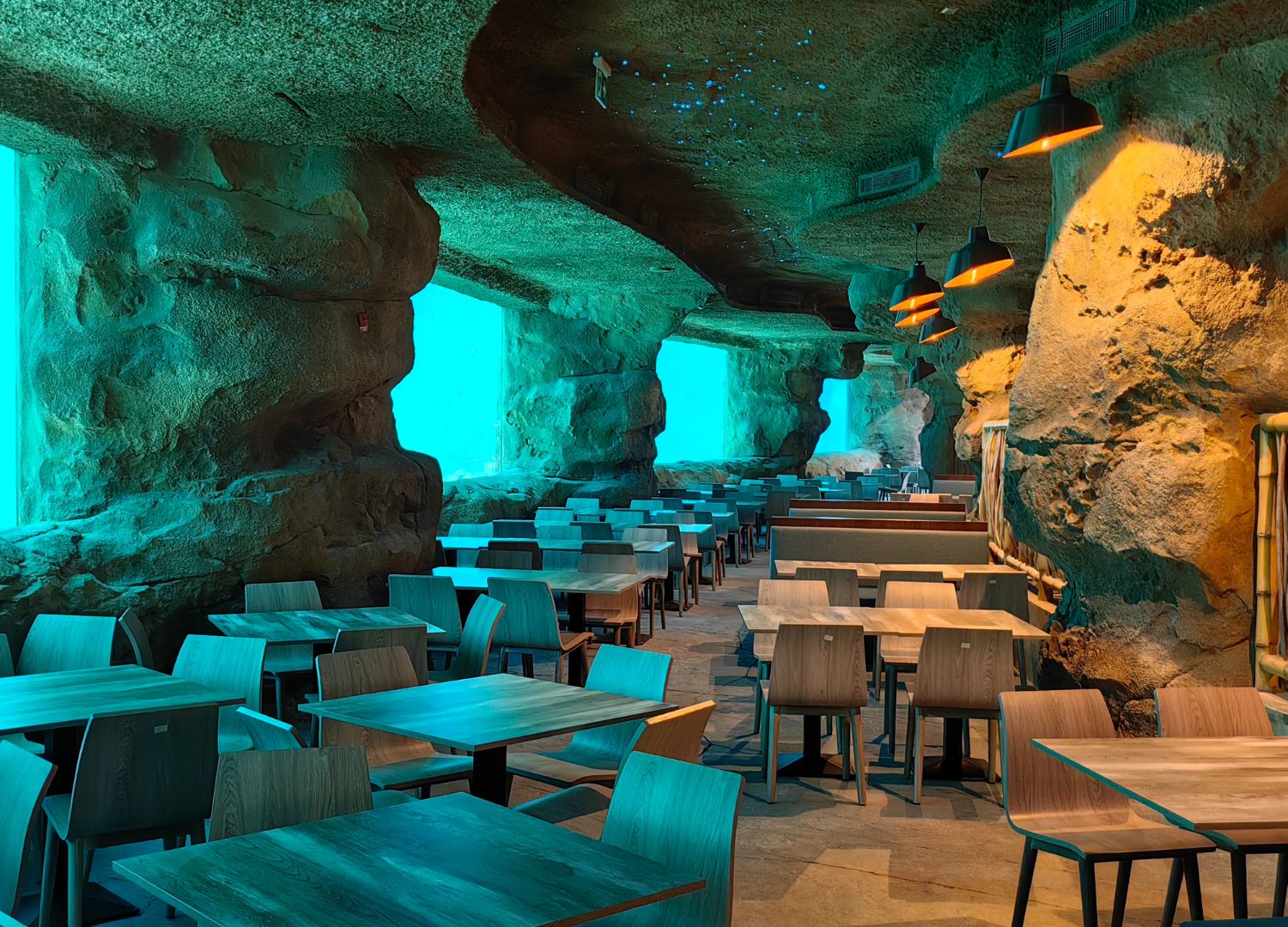
Starting with the brief, Philips MyCreation prioritised understanding the needs and desires of its clients, initiating dialogue to comprehend Miral’s vision, preferences, and requirements. This meticulous approach allowed them to design luminaires that not only meet but exceed client expectations, delivering innovative and effective lighting solutions perfectly aligned with the client’s aspirations.
Leveraging the cutting-edge capabilities of its 3D printing technology Philips MyCreation proposed three design variants that directed light exclusively onto dining tables, thereby minimising light spillage into the aquarium. Each one offered distinct lighting solutions for the space featuring a lampshade as well as multiple options with unique diffusers that further muted the impact of the light.
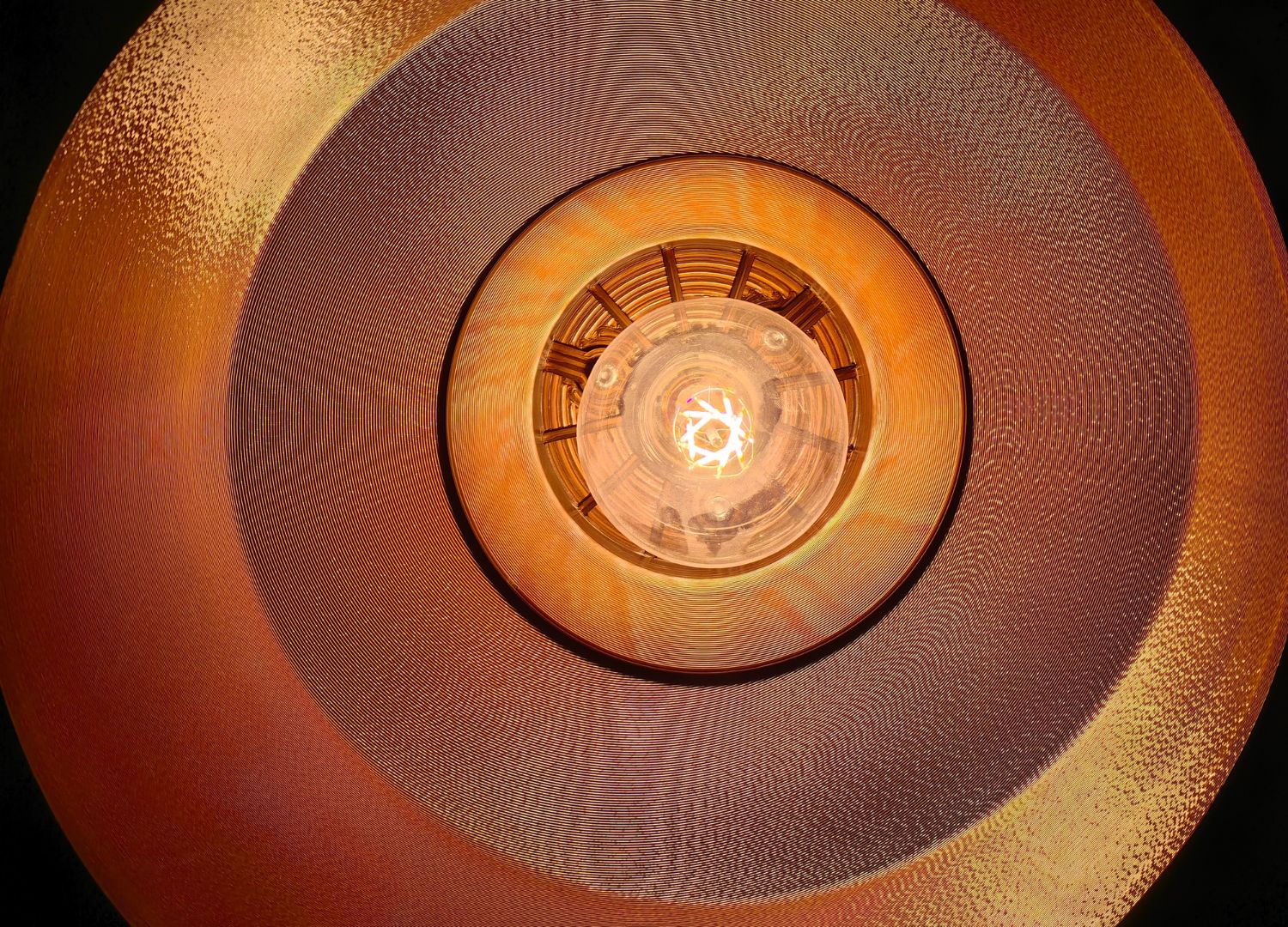
“We went with option 1 because we felt that the other two designs did not release enough lumen to meet the needs of the space. The other options were blocking too much of the luminaire’s output,” noted the team.
The light fixtures are tilted in a way that is facing away from the acrylic windows so all the light is shedding from one direction without shedding the light on the acrylic itself. “To get to the actual product it took 2-3 months,” explained Philips MyCreation. “For this project, we had to use a new slicing algorithm as the shape that was requested by the customer was something that our current tools at the time could not produce.”
“Luckily we could leverage a concept algorithm that was developed to showcase non-planer designs. This allowed us to quite rapidly create a prototype while still using completely new tools. We developed a crude prototype and some renderings to show what the actual product would look like in 2 weeks.”
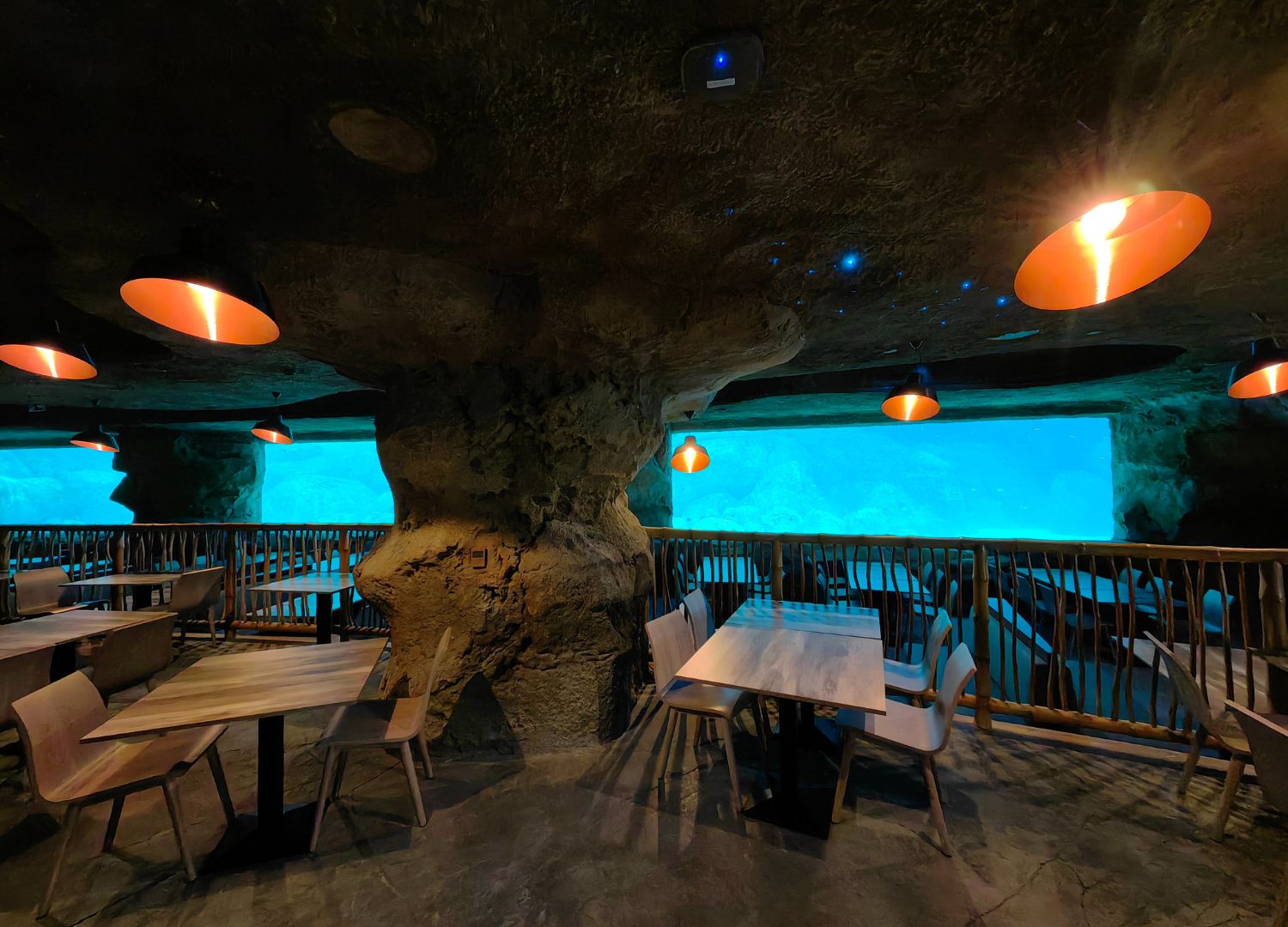
The chosen luminaire is strategically crafted to eliminate reflections and glare on the acrylic windows, thus preserving the immersive experience of diners and aquatic inhabitants alike. Distinguished by a wide array of customization options encompassing colours, transparency levels, and textures, these fixtures boast a standout feature: their unique asymmetrical design, fine-tuned through 3D simulations, effectively mitigates reflections and glare on acrylic windows.
“The luminaire we proposed was asymmetric while other luminaires were non-asymmetric. With a non-asymmetric luminaire, the glare was hitting the glass of the aquarium and scaring the aquatic animals away from the window. Obviously, the entire purpose of having the café within the aquarium was being defeated,” emphasised the team.
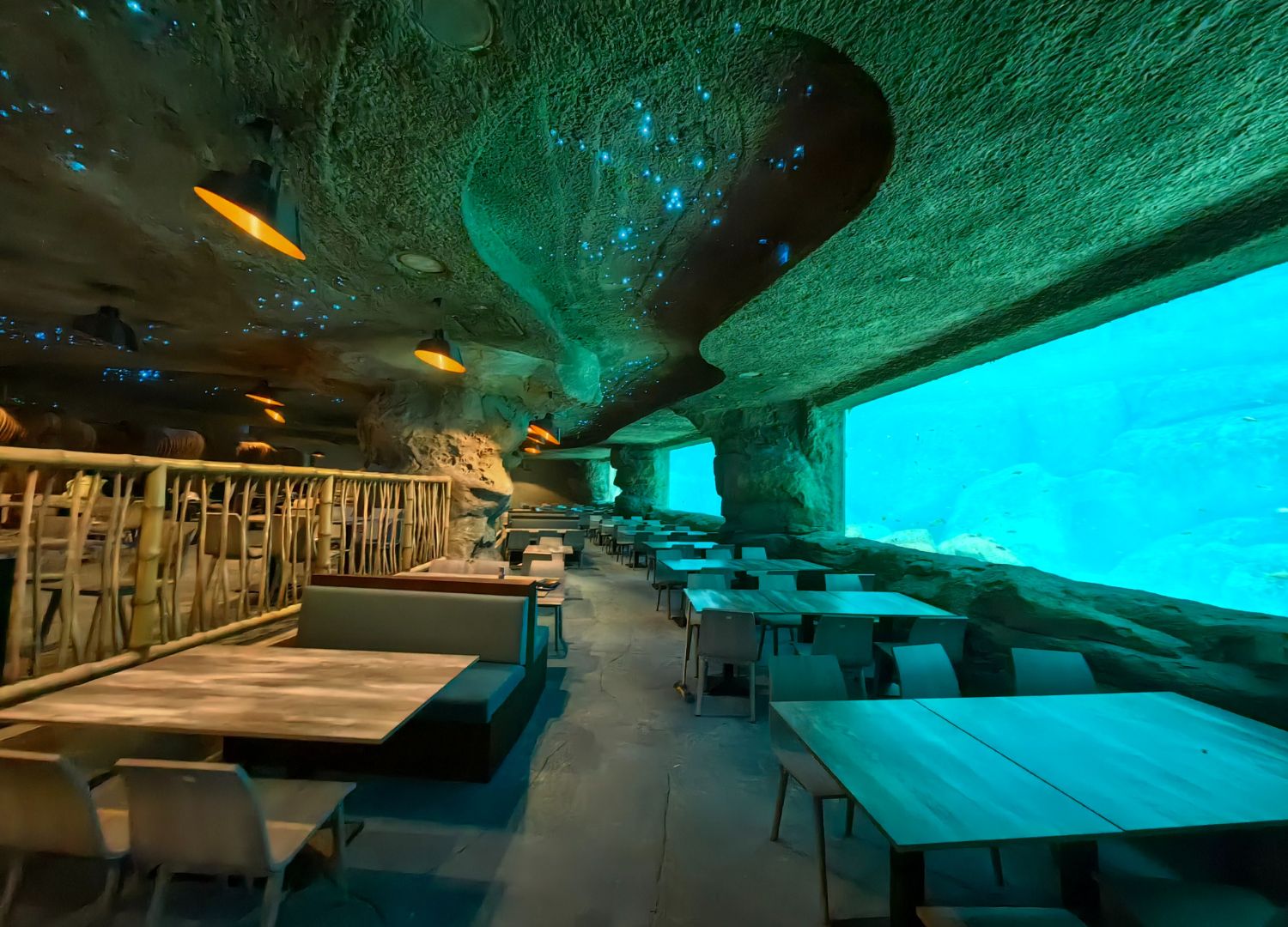
Each luminaire comprised three printed parts, utilising a Bio Circular Polycarbonate filament derived from sustainable sources such as agricultural and forestry residues and used cooking oil. This eco-friendly material not only reduced the project’s carbon footprint but also aligned with Philips MyCreation’s commitment to environmental stewardship. It also underlines the natural materials and biophilic accents that make up the majority of the café’s design.
“The entire supply chain of the bio-circular materials from the granule supplier to our filament and luminaire production is ISCC Plus certified. With our certification, we contribute to environmentally, socially, and economically sustainable production, and our claims are externally audited and verified,” remarked a spokesperson from Philips MyCreation.
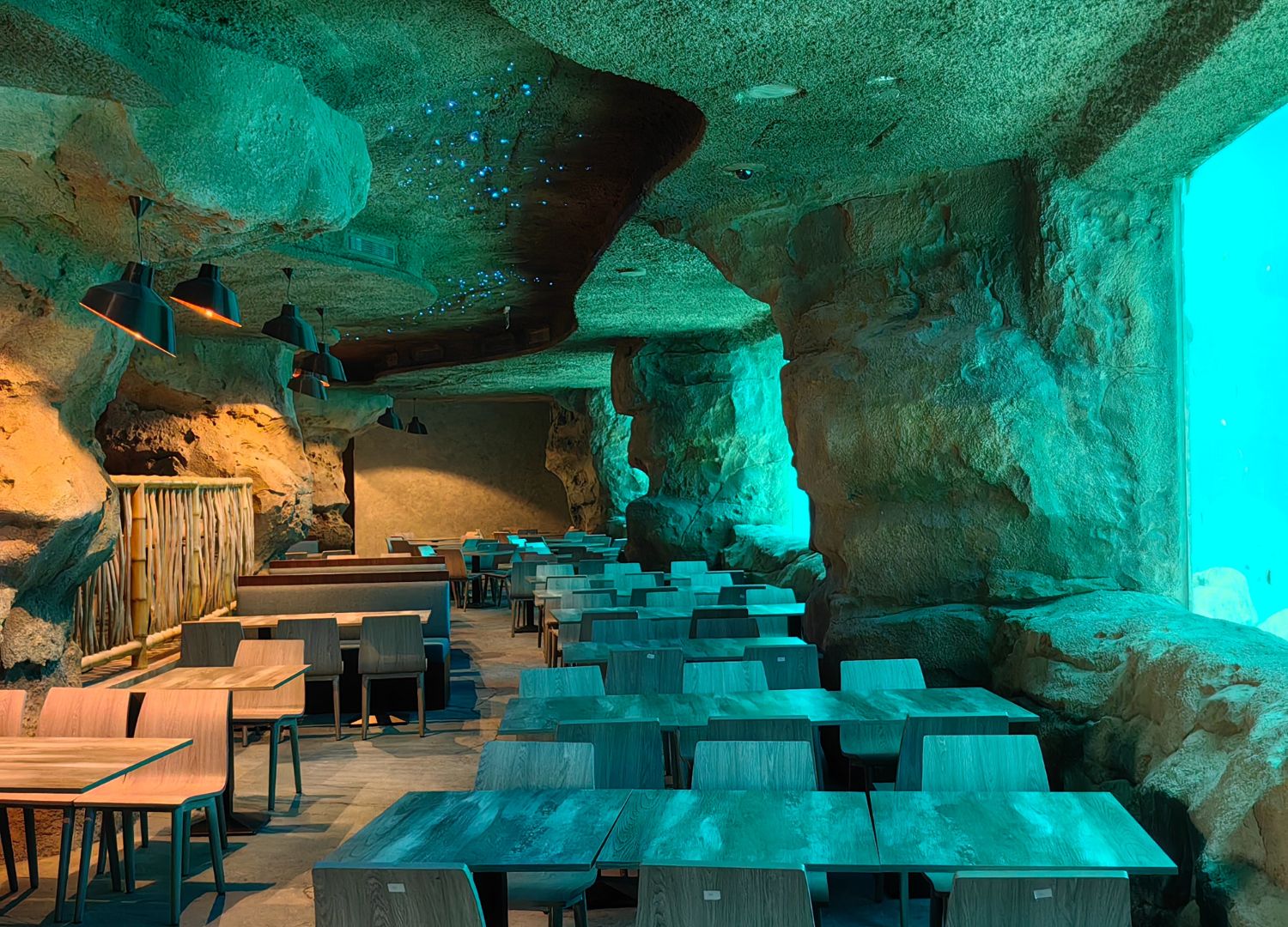
The utilisation of 3D printing not only facilitated a personalised design but also streamlined the installation process, courtesy of the lightweight materials employed. Leveraging on-demand printing, Philips MyCreation expedited production, ensuring delivery within a four-week timeframe from the purchase order date. Moreover, these luminaires were crafted from recyclable materials, in line with environmental sustainability objectives.
The collaboration between Miral and Philips MyCreation proved instrumental in promptly delivering this cutting-edge lighting solution, thereby enriching the distinctive underwater dining experience at SeaWorld® Yas Island, Abu Dhabi whilst also underscoring SeaWorld® Abu Dhabi’s dedication to innovation and sustainability.
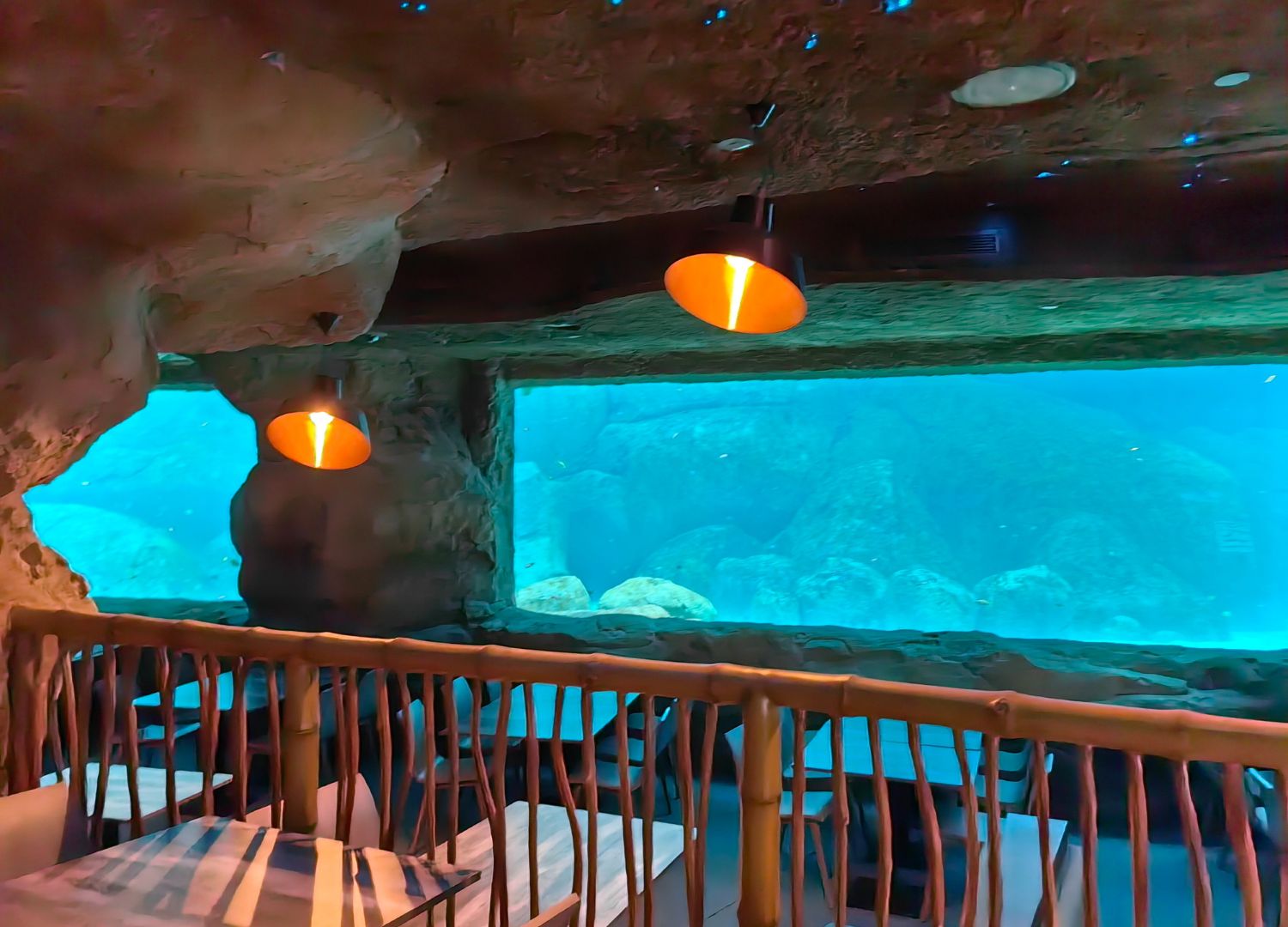
“When we understood that the 3D printed fixtures are actually made from recycled materials this is when we wanted to work with Philips MyCreation on a product that emphasised the idea of sustainability,” the team at Miral explained. “We created the design intent of the space so that you can enjoy a cosy experience. Also, it was a very low carbon emission production for those light fixtures not only saved us time but also they have low energy consumption and it goes back to the idea of sustainability of those light fixtures.”
By understanding the design vision of Miral, Philips MyCreation has integrated its 3D printed luminaires within a space defined by environmental consciousness, illuminating a path towards a brighter, more sustainable future for marine life conservation and themed entertainment.








